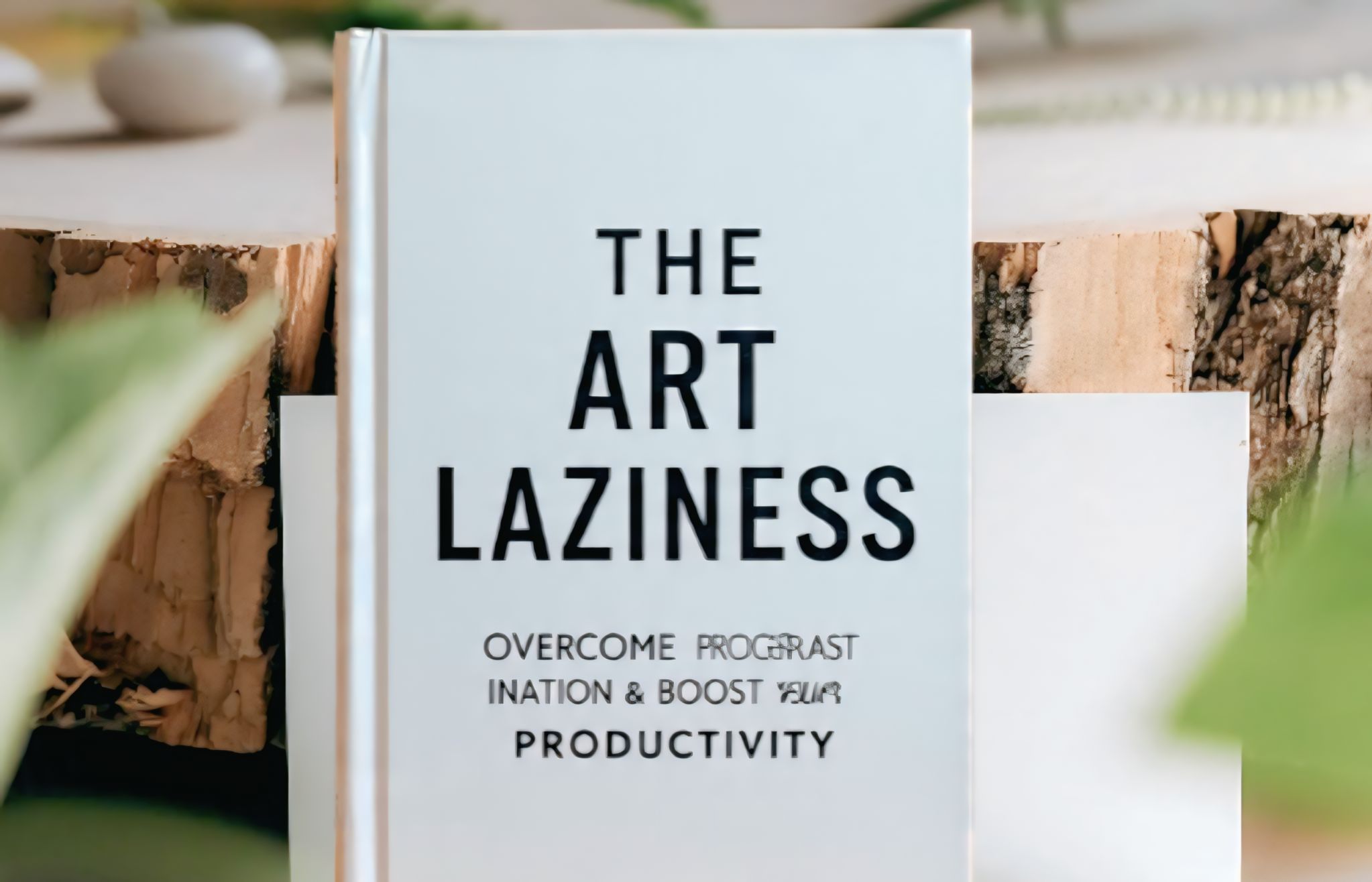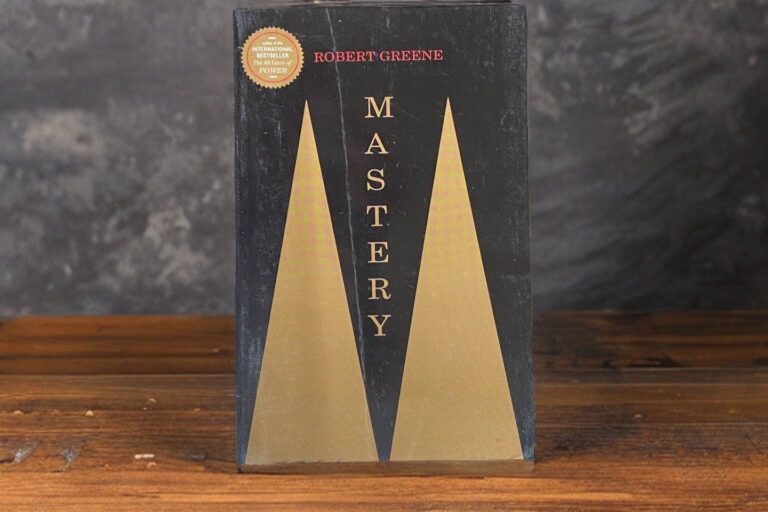
In a world obsessed with productivity, hustle culture, and the constant race to do more, The Art of Laziness offers something wildly refreshing: permission to pause. But it’s not about being careless or unmotivated. This book redefines laziness as a mindful rejection of unnecessary pressure — a way to reclaim energy, focus, and well-being.
Let’s dive deep into what makes The Art of Laziness more than just a clever title. This guide breaks down its core ideas, offers a detailed summary, shares standout quotes, answers common questions, and provides everything readers need to decide whether this book belongs on their shelf.
About the Book: What Is The Art of Laziness?
The Art of Laziness isn’t a typical self-help manual. It doesn’t throw around motivational slogans or push routines that require 5 AM wakeups and back-to-back goals. Instead, it invites readers to reflect on how much of their daily effort is actually necessary — and what happens when that pressure is removed.
The book argues that true productivity isn’t about doing more, it’s about doing what matters — and resting with purpose. It’s about intentional laziness — stepping back to regain clarity, preserve energy, and focus on what genuinely moves life forward.
Book Summary: Breaking Down the Core Ideas
1. Redefining Laziness
The opening chapters challenge the common belief that laziness equals failure. It reframes laziness as a conscious decision to avoid unnecessary busyness. The author explains that many people are overworked, not because they love being productive, but because they fear being seen as lazy.
This toxic mindset, rooted in guilt, leads to burnout. The book pushes back and asks: What if laziness was a tool instead of a flaw?
2. The Cost of Constant Hustle
The next part dives into the damage done by constant motion. Always being “on” leads to a sharp drop in creative thinking, emotional well-being, and physical health. This chapter is filled with studies, examples, and everyday situations where slowing down would’ve produced better results than rushing through.
It highlights how society glamorizes being busy, but rarely talks about what it costs.
3. Laziness as a Strategy
Here’s where the book flips the narrative completely. Laziness, when used with intention, becomes a strategy. This doesn’t mean neglecting responsibility — it means prioritizing rest so energy can be spent on what actually matters.
Think of it as selective effort. Not every email needs a reply. Not every opportunity needs a “yes.” Laziness, in this sense, becomes powerful when it helps cut through the noise.
4. Doing Less, But Better
One of the book’s strongest ideas is the concept of deep effort versus constant effort. Instead of being productive all day, the author promotes focused, high-quality bursts of work — followed by real rest.
The goal isn’t to eliminate action, but to raise the value of it. Less doing, more thinking. Less chasing, more aligning. It’s about finding a rhythm where energy isn’t drained every day, but managed with care.
5. Creating a Rest-First Life
The final section gives practical tools for living this philosophy. It covers:
- How to identify tasks that waste time
- How to say “no” without guilt
- How to build a rest-friendly schedule
- How to unlearn hustle-based self-worth
These tools aren’t rigid systems. They’re flexible approaches that can be shaped around anyone’s lifestyle.
Review: Is The Art of Laziness Worth Reading?
Absolutely — and for more than one reason.
First, it delivers a rare message in a noisy world. Instead of shouting “Do more!” it calmly asks, “Why?” That alone makes it stand out.
Second, it’s readable. The language is direct, the chapters are short, and the tone feels like a conversation — not a lecture.
Third, the advice is practical. There are no extreme life overhauls or unrealistic routines. It’s about mindset first, habits second.
That said, this book isn’t for those looking for a fast-fix, checklist-style solution. It’s more reflective than tactical. It requires slowing down — which is kind of the point.
Who Should Read This Book?
- Anyone feeling burned out or stretched thin
- Creatives who need space to think
- Entrepreneurs or professionals stuck in hustle cycles
- Readers tired of the same productivity advice
- People learning to value themselves beyond what they “do”
This book is especially helpful for those looking to find peace with rest — and who want permission to slow down without guilt.
10 Best Quotes from The Art of Laziness
- “Laziness isn’t the absence of work. It’s the refusal to waste energy on what doesn’t matter.”
- “Sometimes the most productive thing to do is nothing at all.”
- “Rest isn’t a reward. It’s a requirement.”
- “Busyness is often the enemy of purpose.”
- “True effort begins where guilt ends.”
- “Doing less is not laziness when it’s done with intention.”
- “The hardest thing to schedule is space — yet it’s the most valuable.”
- “Laziness, when conscious, becomes clarity.”
- “Every ‘yes’ you say to others is a ‘no’ to something else. Choose carefully.”
- “Efficiency without rest is just exhaustion in disguise.”
These quotes capture the essence of the book — thoughtful, sharp, and surprisingly bold.
About the Author
The author of The Art of Laziness (name may vary depending on edition) is known for challenging conventional thinking in self-development. With a background in psychology and creative work, the author brings both emotional insight and practical reflection into the writing.
Their previous work focuses on themes like burnout, intentional living, and unlearning societal pressure. This book fits right into that message: question what’s “normal,” and choose what’s meaningful.
FAQs
Q1: Is this book only for people who are burned out?
No. While it’s very helpful for those feeling burned out, the ideas apply to anyone who wants a simpler, calmer life — regardless of their energy level or workload.
Q2: Is “laziness” really a good thing?
The book defines laziness differently. It’s not about apathy or avoidance — it’s about being selective with where energy goes. In that sense, it becomes a strength.
Q3: Does this book provide practical steps or just theory?
It offers both. The first half focuses on mindset and perspective. The second half includes tools and suggestions for applying the ideas in daily life.
Q4: Is this book similar to other self-help titles?
It’s less structured than typical productivity books. If books like Essentialism or The Subtle Art of Not Giving a Fck* resonated, this one will feel like a natural next step — calmer, slower, and deeper.
Takeaways: Why This Book Matters
- It’s a clear reminder that life doesn’t need to be rushed
- It respects energy, emotion, and time
- It teaches that rest is not a weakness but a skill
- It helps unlearn guilt-based productivity
- It supports healthier, more thoughtful routines
The Art of Laziness isn’t just about doing nothing. It’s about doing what matters — and letting go of the rest.
In the long run, that’s not lazy. That’s wise.
Final Thoughts
Not every book gives permission to rest — and mean it. The Art of Laziness challenges the glorification of burnout and offers an alternative path: a quieter, slower, and more honest way to live.
Whether the goal is more peace, better focus, or simply relief from the guilt of taking a break, this book makes a solid case that intentional laziness might be one of the smartest habits a person can build.
Thank You For Reading
“Thank you for reading — your time matters, and so does your peace of mind.”
Read Also
Feeling stuck in a cycle of overworking with little to show for it? This is where books like Atomic Habits come in handy. It’s another powerful read that breaks down how small, smart steps can replace mindless hustle. You can explore the full summary and lessons from Atomic Habits here.
The idea of slowing down isn’t new. Even ancient thinkers like Marcus Aurelius spoke about being intentional with energy and time. If that sparks curiosity, dive into his life story and timeless Stoic lessons in this Marcus Aurelius biography.
Smart laziness is often about being more financially aware. When money is managed well, there’s no need to overwork just to survive. For those looking to build financial freedom with clarity, check out these top personal finance books worth adding to the reading list.
Quotes in “The Art of Laziness” might give a nudge in the right direction, but if you’re looking for more daily fuel to stay balanced and motivated, here’s a list of 50+ motivational quotes that can help shift any mindset.
Interested in how other high-performers manage time without burning out? Tim Ferriss is a name that comes up often in this space. Learn more about his work and mindset in this in-depth piece on Tim Ferriss.






